Thomas Wolsey: Life Story
Chapter 2 : Early Career (1501 - 1509)
There was never any possibility of a man so talented and ambitious as Wolsey living in the country and ministering to his flock.He was obviously expecting promotion, as he applied on 3 November 1500 for a Papal Licence to hold more than one living.
In 1501, presumably through the good offices of Dorset, he became Chaplain to Henry Deane, Archbishop of Canterbury, who was also Lord Keeper of The Great Seal – a crucial position, as without the Great Seal, no official business could be implemented.
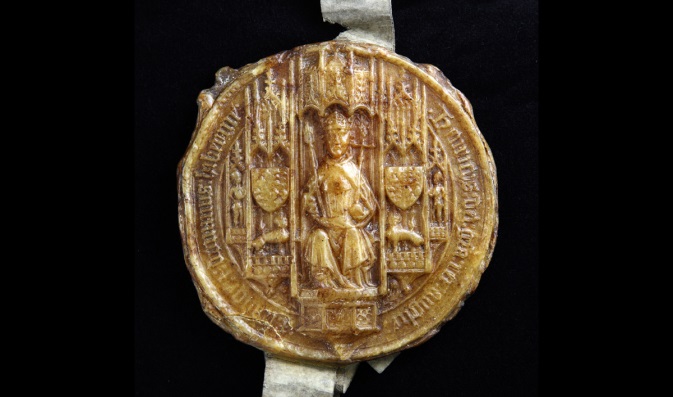
Whilst in the Archbishop's household, Wolsey would have spent most of his time at Lambeth Palace, and was probably there when Katharine of Aragon stayed there in 1501, prior to being married by Archbishop Deane to Prince Arthur on 14th November 1501. The pageants for the wedding were magnificent, and this is when Wolsey may first have witnessed the power of spectacle as propaganda.
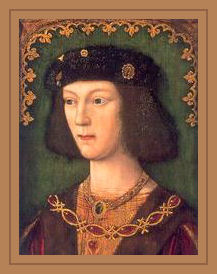
Wolsey was also in Archbishop Deane's train when he visited Scotland in negotiations related to the Treaty of Perpetual Peace, that resulted in the marriage of Henry VII's daughter Margaret, to James IV of Scotland. Wolsey presumably enjoyed this taste of foreign diplomacy, as, later in life, foreign affairs seem to have been his over-riding political interest.
On Deane's death in 1503, Wolsey became part of the household of Sir Richard Nanfan, Deputy Lieutenant of Calais. Peter Gwyn sees this as rather a come-down, but John Matusiak, Wolsey's most current biographer in " The Life of King Henry VIII's Cardinal", describes the opportunity quite differently.
Matusiak sees this as the period in Wolsey's career when he became thoroughly conversant with day-to-day administration of commercial, diplomatic and military affairs. Calais, the last English toe-hold in France, was the place where the majority of English exports were landed for transport into Europe. It was also a border town that had to be kept in a constant state of readiness, lest the French try to wrest it back.
The Deputy Lieutenant was answerable for everything that happened in Calais and its surrounding Pale. It was thus a position of great responsibility, and the elderly Nanfan entrusted much of the work to Wolsey. Wolsey probably spent the four years from 1503 to 1507 in Calais, returning on Nanfan's death.
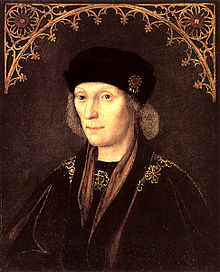
Back in London, Wolsey obtained a post as Chaplain to the King himself. Henry VII's later years were overshadowed by gloom and a sense of repression – not altogether surprising when Henry's personal losses are considered. He lost a fifteen-month old son, a fifteen-year-old son, his wife and a new born baby all within the space of two years as well as seeing his thirteen-year-old daughter depart for a new country. It would hardly be remarkable if he were depressed.
In true mediaeval fashion, the King, always religiously inclined, dealt with his sorrows by increasing his devotions, hearing several Masses daily and spending more time and money on his charitable projects. He would thus have had frequent contact with his Chaplains.
Wolsey is always seen as being Henry VIII's creation, but it is apparent that Henry VII recognised his talents almost immediately. Both Tudor kings were more than willing to promote men of ability, regardless of their background – partly because they recognised the importance of skill, and partly, no doubt to have servants who were dependent wholly on themselves for favour, without their own resources.
During this period, Wolsey also became close to Sir Thomas Lovell, and Richard Foxe, Bishop of Winchester, two of Henry VII's most trusted advisors. Lovell was President of the King's Council, Chancellor of the Exchequer (not the important role it is today, but not insignificant), Speaker of the House of Commons and Master of the King's Wards.
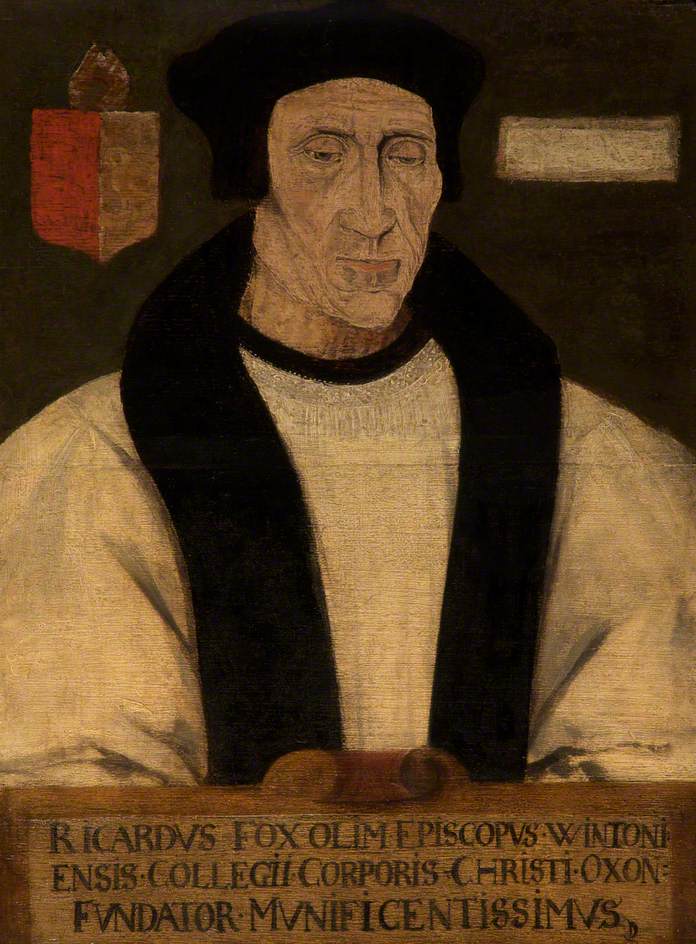
Richard Foxe was also Lord Privy Seal and closely involved in all matters of government, particularly foreign affairs. Wolsey became Foxe's Secretary and their relationship became to be one of personal trust and even affection, as evidenced by their letters in later times.
In 1508 Wolsey was sent by Henry VII to both Scotland, to negotiate over Border matters with James IV, and to the Low Countries, on an embassy to the Emperor.
The trip to the Low Countries is one of the most famous episodes in Wolsey's early career. Apparently, he received the commission from the King at Richmond before noon, arrived in London by 4pm, took the barge to Gravesend and was there by 7pm, rode post to Dover, where he slept and took ship to Calais first thing in the morning, arriving by 10am.
He then raced to the feet of the Emperor, whose court was not far across the border in Flanders, dispatched his business, returned to Calais that night, sailed in the morning, headed for London and was back at his post in Richmond early the next day. Henry, on seeing him, rebuked him for not having left, and was amazed to hear that Wolsey had been and returned.
The trip to Scotland was not quite so successful. James IV kept the delegation waiting in Berwick for five days. Even after he arrived, James was too busy to see him – he sent word that he was inspecting a gun-powder factory. Eventually, an audience was granted, repeated over eight days. James, however, was not inclined to return the hostages that he was holding. Wolsey admitted to the King that there was some excuse for this as " the offences of the Englishmen were to those of the Scotsmen as four to one".
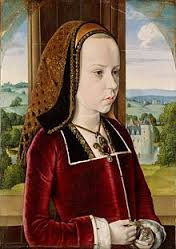
Wolsey was back in the Low Countries in the autumn of 1508, negotiating a second marriage for Henry VII with Marguerite of Austria, the Emperor's daughter, and Regent of the Low Countries. Nothing came of the negotiations but Wolsey was rewarded with the post of Almoner in November 1508, and then, on 2 nd February 1509, the position of Dean of Lincoln.
This was the last office that Henry VII granted Wolsey, before his death on 21 st April 1509. Wolsey was one of the clergy who followed the solemn procession behind Henry VII's coffin, as it was finally laid to rest in Henry's new-built Chapel at Westminster Abbey on 8th May 1509.



